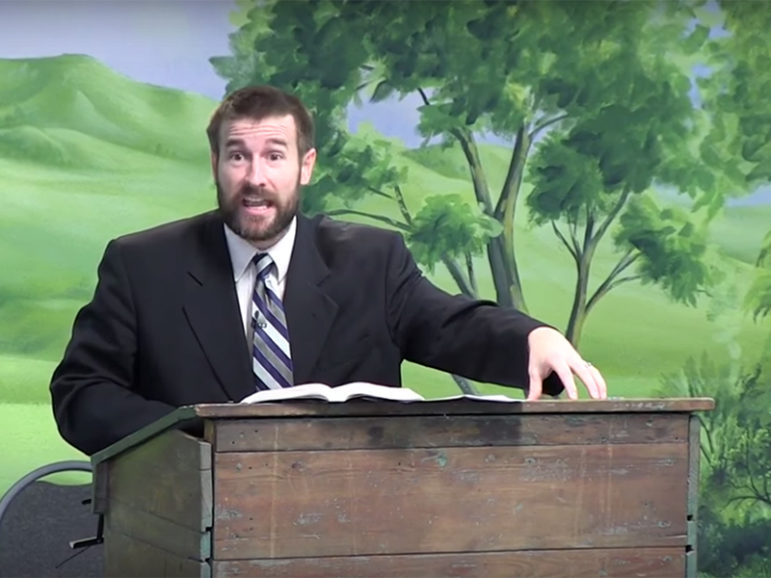This commentary is part of a series produced for Religion News Service’s parent organization Religion News Foundation with support from the Arcus Foundation and Heinrich Böll Stiftung Southern Africa. It emerged from a November 2016 journalism training workshop in Cape Town, South Africa.
BLANTYRE, Malawi—The Book of Matthew is very clear about the greatest commandment: love. One should not wish death or bad luck upon loved ones.
Unfortunately, many who claim to be continuing the work of Jesus Christ seem not to understand his basic teachings.
Take, for example, the American pastor Steven Anderson of the Faithful Word Baptist Church.
The Arizona-based pastor, known for his hate speech against sexual and gender minorities, says homosexuality is a crime worthy of death and has tried to take his message to Southern Africa.
Although he was denied entry into South Africa in September under a section of the country’s Immigration Act that prohibits advocating social violence, Botswana accepted him.
In Gaborone, he called gay men pedophiles and said homosexuals should be “stoned to death” during a radio interview, declarations that prompted the government to arrest and deport him.
Despite these setbacks, the pastor’s thirst for Africa did not end there. Anderson said he wanted to set up a church in Malawi.
Then government spokesperson Malison Ndau told local media, “Thinking of coming to set up a church here with such ideologies cannot be allowed…The ideologies are against human rights, which the Government of Malawi respects.”
The government suspended enforcement of anti-gay laws in 2012 and renewed the moratorium in 2015. But within Malawi, many religious leaders side more with Anderson than the government.
In January of this year, the government organized prayers to ask for divine intervention to help end a severe drought. Anti-gay messages soon dominated the prayers.
In February, pastors in Malawi’s Northern Region went to court to challenge the government’s moratorium decision.
Then in December, the Episcopal Conference of Malawi (ECM) and the Evangelical Association of Malawi (EAM) organized a march against homosexuality and abortion.
“We note with grave concern that the institution of marriage between a man and a woman is under direct attack by those pushing for the legalization of homosexual practices and unions. Besides being sinful and unnatural, homosexual acts and unions are a threat to the community and morality of a society,” said a statement the two organizations released on December 6, 2016.
Gift Trapence, executive director of Centre for the Development of People (CEDEP), an organization that champions the rights of sexual minorities, thinks local clergy have gone overboard.
“Malawi is a secular state. As such, the diversity in beliefs should be recognized,” he said. “I don’t think Jesus would behave like many church leaders we see today. There is a lot of hypocrisy and pretense to be holy. Let us preach the message of love rather than hate. Leave judgment to God.”
Trapence tells clergy that the church and God should exist for everyone regardless of sexual orientation, wondering how God could discriminate or hate His own creation.
Father Martin Kalimbe of the Anglican Church in Malawi said he feared the anti-gay demonstrations as well as the conduct of the American pastor might bring hatred and chaos for sexual minorities in the country.
“I don’t think that [marching] was the right thing to do,” he said. “The church is supposed to bring love among the people, and what happened will only make these people vulnerable. Some people will interpret the march [in December] to mean they have been given the green light to do whatever they want against homosexuals.”
General Secretary of the General Synod of the Church of Central Africa Presbyterian Reverend Dr. Timothy Nyasulu said all sins should be treated equally to avoid being misinterpreted.
“In Luke 19:10, Jesus came to seek and save the lost. You would not stone to death a person you regard as a sinner, but make him or her repent,” he said.
Nyasulu added that the paramount law in the Bible is love−first God, then your neighbor.
Edwin Nyirongo is a journalist based in Malawi.





